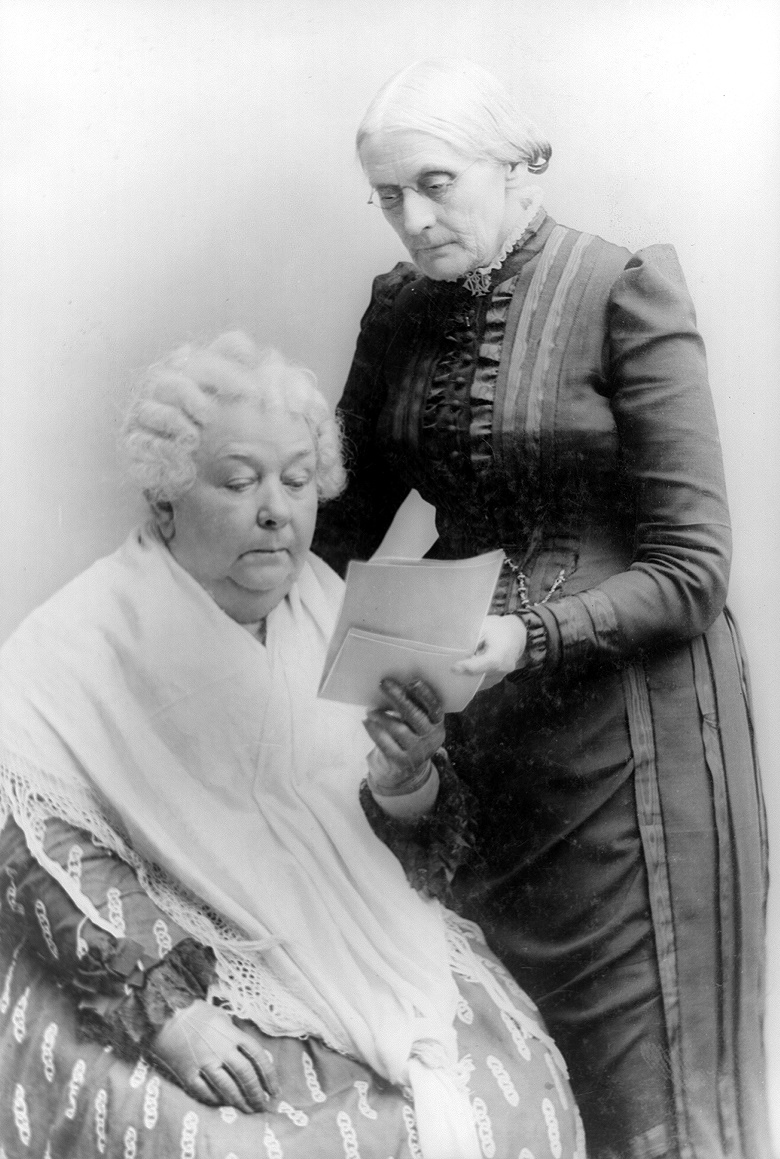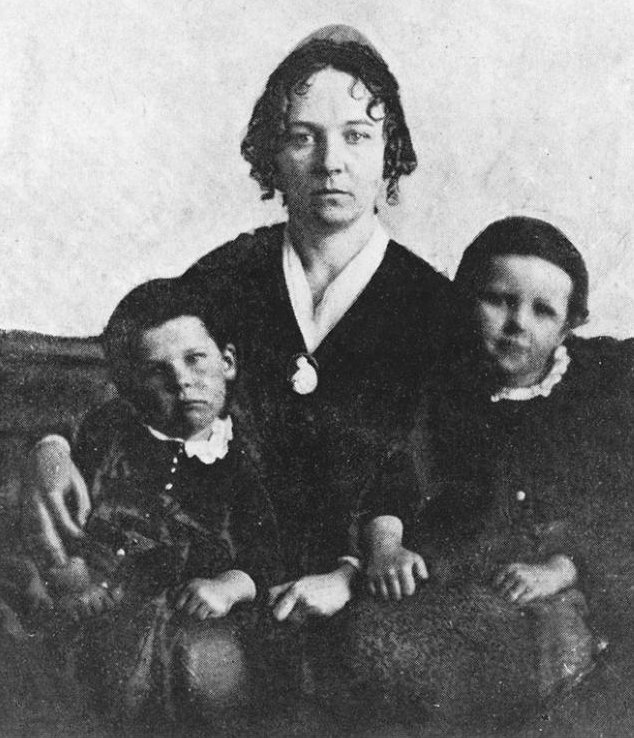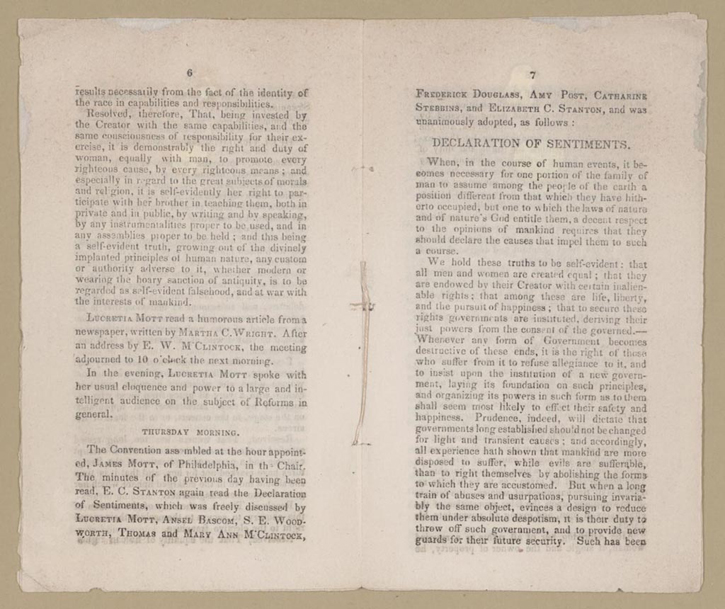One November 12, 1815, Elizabeth Cady Stanton, famed women’s rights activist, was born. Stanton is most closely associated with advocating the right to vote for women and helping to orchestrate the first women’s rights convention at Seneca Falls, NY in 1848.
 |
| Elizabeth Cady Stanton (seated) with Susan B. Anthony (standing), circa 1900. |
She is much less well known now than her close friend and intellectual partner, Susan B. Anthony. Described by historian Lori Ginzberg as “[b]rilliant, self-righteous, charismatic, self-indulgent, mischievous, intimidating, and charming,” Elizabeth Cady Stanton was, however, a force to be reckoned with, and the most important and well-known female intellectual of her time.
Elizabeth Cady Stanton was born on November 12, 1815 in Johnstown, NY to a prominent family. When she was eleven years old, after the death of her only brother, her father said to her “Oh, my daughter, I wish you were a boy!”
Whether he meant the comment as an affront or as a statement on the injustice that the very bright Elizabeth would be limited by the fact of her sex, Stanton took it as a challenge. She was inspired not only to prove to her father that she would not be limited by society but also to ensure that future generations of women would not have to break barriers in order to live up to their potential.
In the nineteenth century, the ideal woman was supposed to be pious, pure, maternal, and, most of all, dependent on men. In this paternalistic world, most people thought that women were more naturally suited to life in a home, where they could be protected from the evil and corruption of the world. Stanton knew that this dependency, bred into women from birth, left many without a safety net into which they could fall when life fell short of the ideal.
 |
| Elizabeth Cady Stanton with two of her three sons Daniel and Henry, 1848. |
Stanton loved marriage and motherhood, but at the same time felt the frustration of being confined to a home, particularly when it prevented her from traveling and advocating on behalf of women’s rights.
She channeled her frustrations into the statement of purpose she wrote in anticipation of the first women’s rights convention, held in Seneca Falls in July of 1848.
“The Declaration of Rights and Sentiments” outlined the ways in which men had held women in “absolute tyranny.” These included denying her the right to vote, the right to own property and earn wages, and the right to divorce her husband without losing custody of her children. They also comprised preventing her from receiving a good education and obtaining good jobs, creating a double moral standard for men and women, and lessening “her self-respect, and to make her willing to lead a dependent and abject life.”

Elizabeth Cady Stanton House, Seneca Falls, NY. Photo by Ken Zirkel, 2013.
Stanton was a revolutionary thinker. She proposed drastic changes in the way that society, religion, culture, and the law treated women. She envisioned a world where women could vote, hold political office, own property, earn wages, acquire good educations, get divorced, and be safe from domestic violence.
At the same time, she was also a product of her time, her race, and her class. Although she opposed slavery and was active in abolitionist circles, Stanton often expressed indignation (as she did in “The Declaration of Rights and Sentiments” of 1848) that men “withheld from [women] rights which are given to the most ignorant and degraded men – both natives and foreigners.”

In a speech she delivered to congress in 1892 Stanton claimed, “No matter how much women prefer to lean, to be protected and supported, nor how much men desire to have them do so, they must make the voyage of life alone, and for safety in an emergency they must know something of the laws of navigation.”
Although Stanton did not live to see women gain the right to vote after World War I, she remained active until the end of her life, writing books, giving speeches, and campaigning. She died on October 26, 1902, eighteen years before the passage of the Nineteenth Amendment.
Elizabeth Cady Stanton was willing to criticize some of the most deeply held beliefs of her time and insisted on questioning what most deemed “natural” and therefore unchangeable. She believed, passionately, that women had enormous potential to offer the world, if they were only given the opportunity.
